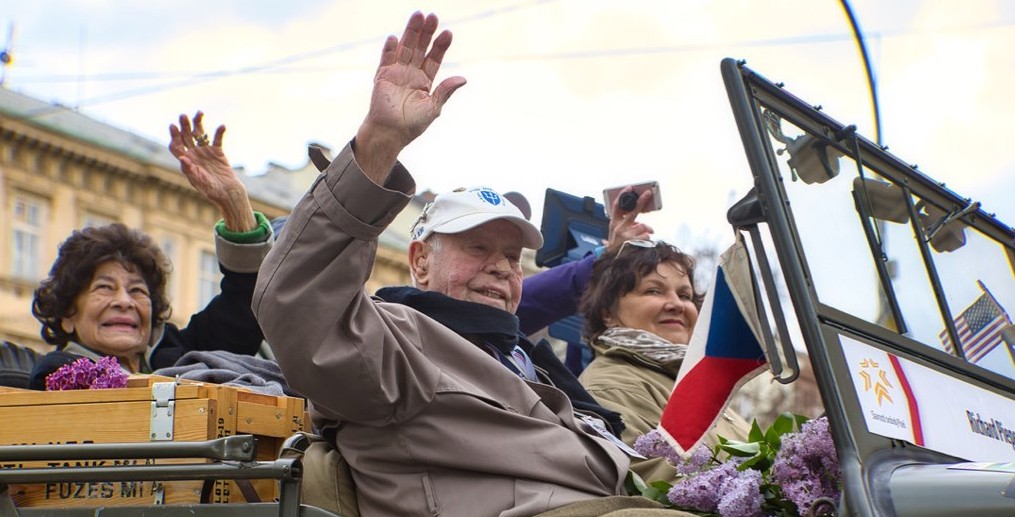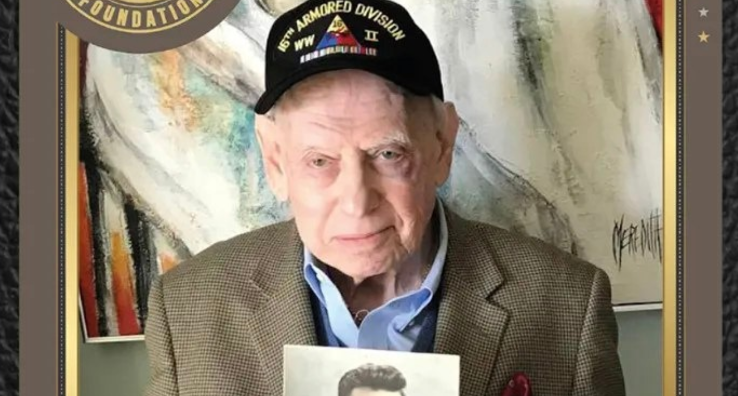

News
Právo news: No time for girls and beer, recalled American veteran Harry Humason in Plzeň
Plzeň was ready. At least one American war veteran arrived again for the Liberation Festival, commemorating the liberation of the city by Patton's army, after none had come in the previous three years. Harry Humason flew in from the west coast of the United States.
Humason decided to cross the Atlantic at the age of ninety-nine, and on Friday, May 2, the vital old man briefly met with journalists in the West Bohemian metropolis.
He returned to Europe after a long eighty years, after being tracked down and approached by historian Jiří Klůc. He had not heard of the Pilsen celebrations until then. "There is a wonderful atmosphere here, incredibly nice people and interesting architecture," he praised the city. He was not here during the war - he fought in the ranks of the 2nd Infantry Regiment of the 5th Infantry Division of General Patton's 3rd Army in southern Bohemia near Volary.
“On the Teplá Vltava. We reached the river, there were still Czechoslovak redoubts there, the Germans had cannons there. In the end, we did not cross the river, it would undoubtedly have meant losses. I saw dead bodies being collected by another river in Germany,” Humason recalled.
He voluntarily joined the army as a boy of only eighteen. When he reached Czechoslovakia, he was nineteen.
“There was no time for Czech girls or beer, and we were only here for a short time, about a week, and only a few kilometers from the border. We could hear the Soviets shooting at the Germans from a distance – and they were trying to get to us and capture us. I remember the hunting lodge where we kept them before we escorted them further to the rear. And I also remember the German plane that flew over us and we were not allowed to shoot at it. They said there were German representatives in it, in connection with the surrender,” said the veteran, who served in the army as a so-called BAR man, that is, as a shooter with a Browning automatic rifle, a light machine gun.
The Americans knew at the time that there was fighting in Prague. “The uprising broke out too soon, we should have gone to help, but then the situation changed,” Humason noted. He will only visit Prague now as part of the commemorations on May 8, after which he will be transferred to Frankfurt am Main, Germany. “I remember it as completely destroyed, I wonder what it will look like there,” he added.
Harry Humason returned to America shortly after the end of the war. “We were given forty-five days off and then we were expected to fight in the Pacific against the Japanese. Fortunately, the war ended early,” he concluded.
Harry Humason returned to America shortly after the end of the war. “We got forty-five days off and then we were counted on in the Pacific against the Japanese. Fortunately, the war ended early,” he concluded.
In Plzeň, he will be the main celebrity in Sunday’s convoy of historic vehicles and will also take part in Tuesday’s memorial service at the Thank You, America! monument
Author of the article: Ivan Blažek












